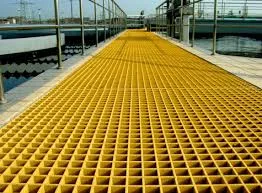
-
 Afrikaans
Afrikaans -
 Albanian
Albanian -
 Amharic
Amharic -
 Arabic
Arabic -
 Armenian
Armenian -
 Azerbaijani
Azerbaijani -
 Basque
Basque -
 Belarusian
Belarusian -
 Bengali
Bengali -
 Bosnian
Bosnian -
 Bulgarian
Bulgarian -
 Catalan
Catalan -
 Cebuano
Cebuano -
 China
China -
 China (Taiwan)
China (Taiwan) -
 Corsican
Corsican -
 Croatian
Croatian -
 Czech
Czech -
 Danish
Danish -
 Dutch
Dutch -
 English
English -
 Esperanto
Esperanto -
 Estonian
Estonian -
 Finnish
Finnish -
 French
French -
 Frisian
Frisian -
 Galician
Galician -
 Georgian
Georgian -
 German
German -
 Greek
Greek -
 Gujarati
Gujarati -
 Haitian Creole
Haitian Creole -
 hausa
hausa -
 hawaiian
hawaiian -
 Hebrew
Hebrew -
 Hindi
Hindi -
 Miao
Miao -
 Hungarian
Hungarian -
 Icelandic
Icelandic -
 igbo
igbo -
 Indonesian
Indonesian -
 irish
irish -
 Italian
Italian -
 Japanese
Japanese -
 Javanese
Javanese -
 Kannada
Kannada -
 kazakh
kazakh -
 Khmer
Khmer -
 Rwandese
Rwandese -
 Korean
Korean -
 Kurdish
Kurdish -
 Kyrgyz
Kyrgyz -
 Lao
Lao -
 Latin
Latin -
 Latvian
Latvian -
 Lithuanian
Lithuanian -
 Luxembourgish
Luxembourgish -
 Macedonian
Macedonian -
 Malgashi
Malgashi -
 Malay
Malay -
 Malayalam
Malayalam -
 Maltese
Maltese -
 Maori
Maori -
 Marathi
Marathi -
 Mongolian
Mongolian -
 Myanmar
Myanmar -
 Nepali
Nepali -
 Norwegian
Norwegian -
 Norwegian
Norwegian -
 Occitan
Occitan -
 Pashto
Pashto -
 Persian
Persian -
 Polish
Polish -
 Portuguese
Portuguese -
 Punjabi
Punjabi -
 Romanian
Romanian -
 Russian
Russian -
 Samoan
Samoan -
 Scottish Gaelic
Scottish Gaelic -
 Serbian
Serbian -
 Sesotho
Sesotho -
 Shona
Shona -
 Sindhi
Sindhi -
 Sinhala
Sinhala -
 Slovak
Slovak -
 Slovenian
Slovenian -
 Somali
Somali -
 Spanish
Spanish -
 Sundanese
Sundanese -
 Swahili
Swahili -
 Swedish
Swedish -
 Tagalog
Tagalog -
 Tajik
Tajik -
 Tamil
Tamil -
 Tatar
Tatar -
 Telugu
Telugu -
 Thai
Thai -
 Turkish
Turkish -
 Turkmen
Turkmen -
 Ukrainian
Ukrainian -
 Urdu
Urdu -
 Uighur
Uighur -
 Uzbek
Uzbek -
 Vietnamese
Vietnamese -
 Welsh
Welsh -
 Bantu
Bantu -
 Yiddish
Yiddish -
 Yoruba
Yoruba -
 Zulu
Zulu
Advancements in FRP Composite Panels for Enhanced Structural Performance and Durability
Exploring the Versatility of FRP Composite Panels
Fiberglass Reinforced Polymer (FRP) composite panels have become a cornerstone of modern construction and manufacturing, prized for their strength, durability, and versatility. As industries continue to seek innovative solutions that enhance performance while reducing weight, FRP composite panels have emerged as a compelling option across various applications.
FRP composite panels are primarily made from a polymer matrix reinforced with glass fibers, which provide exceptional mechanical properties. The lightweight nature of these panels makes them ideal for applications where traditional materials like metal or concrete would be cumbersome. Their design allows for a remarkable strength-to-weight ratio, making them suitable for a range of industries, including construction, transportation, marine, and even aerospace.
Exploring the Versatility of FRP Composite Panels
In the construction sector, FRP composite panels are increasingly being used for facades, roofing systems, and interior wall cladding. Their aesthetic appeal, combined with the wide range of colors and finishes available, allows architects and designers to create visually stunning spaces that also perform well structurally. Furthermore, the ease of installation and lightweight nature of these panels can lead to significant labor and cost savings during construction.
frp composite panels

The transportation industry has also recognized the benefits of FRP composite panels, particularly in the manufacturing of vehicles, trains, and boats. The reduced weight of vehicles contributes to improved fuel efficiency, which is a significant concern in today’s eco-conscious market. Additionally, the enhanced durability of FRP materials reduces maintenance costs and extends the lifespan of transport vehicles.
In the marine industry, FRP composite panels are ideal for boat manufacturing due to their buoyancy and resistance to water absorption. These panels can withstand the rigors of marine environments, including harsh weather conditions and exposure to saltwater. This durability reduces repair and replacement costs, making them an economical choice for boat builders.
Furthermore, FRP composite panels are gaining traction in the aerospace sector. Their lightweight and rigid characteristics contribute to fuel efficiency in aircraft, leading to lower operational costs and reduced emissions. The aviation industry continuously seeks ways to lighten aircraft without compromising safety, and FRP composite panels play a crucial role in achieving this objective.
Despite their many benefits, it is essential to note that the production of FRP composite panels does have environmental implications. The raw materials used and the manufacturing processes can be energy-intensive and produce waste. However, ongoing advancements in recycling technologies and sustainable manufacturing practices are helping to mitigate these issues, making FRP composites a more eco-friendly choice over time.
In conclusion, FRP composite panels stand out as a versatile and durable solution across various sectors. Their strength, lightweight properties, resistance to environmental degradation, and aesthetic versatility make them an attractive alternative to traditional materials. As industries evolve and demands for sustainable solutions grow, FRP composite panels are poised to play an increasingly important role in shaping the future of construction, transportation, and beyond.









